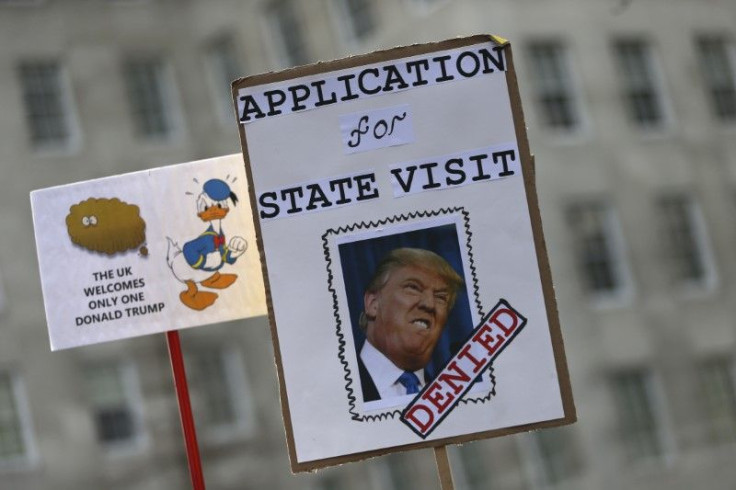Will Trump Meet The Queen? UK Government Responds To Almost 2 Million Who Signed Petition Over State Visit

President Donald Trump’s proposed meeting with Queen Elizabeth later this year remains on the agenda after the United Kingdom government rejected a petition signed by nearly two million people seeking to have the event canceled.
British Prime Minister Theresa May extended the invitation from the queen for a full state visit when she became the first foreign leader to visit Trump in the White House last month. In response, a petition was started on the U.K. Parliament website that stated the offer for an official state visit should be revoked because of his “well documented misogyny and vulgarity," which "would cause embarrassment to Her Majesty the Queen.”
Having long ago reached the threshold of 100,000 signatures, the issue has been scheduled for debate in parliament next Monday. However, the government has already issued a response to the 1.85 million signatories of the petition, stressing that the visit will go ahead as planned.
“HM Government believes the President of the United States should be extended the full courtesy of a State Visit,” the response read. “We look forward to welcoming President Trump once dates and arrangements are finalized. This invitation reflects the importance of the relationship between the United States of America and the United Kingdom. At this stage, final dates have not yet been agreed for the State Visit.”
As the head of state, any state visit to the U.K. encompasses a meeting with the Queen. It could be a particularly uncomfortable occasion, not only because of Trump’s previous comments about how he likes to greet women, but also because of tweets he wrote in 2012 discussing topless pictures of the Duchess of Cambridge, Kate Middleton.
Kate Middleton is great--but she shouldn't be sunbathing in the nude--only herself to blame.
— Donald J. Trump (@realDonaldTrump) September 17, 2012
Who wouldn't take Kate's picture and make lots of money if she does the nude sunbathing thing. Come on Kate!
— Donald J. Trump (@realDonaldTrump) September 17, 2012
The issue has already caused significant political wrangling in Britain after the speaker of the House of Commons, John Bercow, took the unprecedented step of saying he would block any plan for Trump to address parliament. Bercow, who cited Trump’s “racism and sexism” as reasons for his opposition, faced a backlash from members of May’s Conservative government, claiming that he had violated his supposed independent stance.
© Copyright IBTimes 2025. All rights reserved.





















